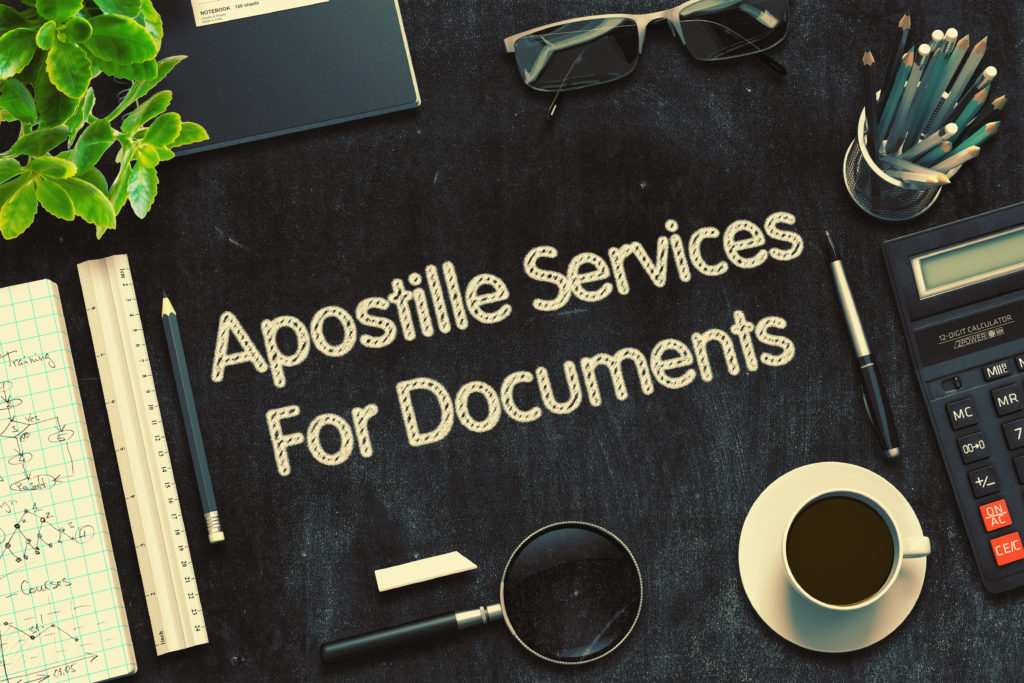As the world becomes increasingly digital, so do traditional professions. One such profession is that of a notary public, and more specifically, online notaries. In this article, we’ll explore everything you need to know about becoming an online notary in New York. From understanding the role to meeting state requirements, and using essential tools and technology, we’ve got you covered.
Understanding the Role of an Online Notary
An online notary public is a legally commissioned notary who performs notarial acts online using audio-visual technology instead of in-person interaction. Notarization is the process of verifying the authenticity of signatures, identifying document signers, and preventing fraud. Online notaries are becoming increasingly popular due to the convenience and flexibility they offer.
Traditional Notary vs. Online Notary
The roles of traditional and online notaries are fundamentally the same. However, online notaries employ advanced technology and tools to execute notarial acts from anywhere in the world. This means that they can provide their services to clients who are not in the same physical location as them. Online notaries also use electronic signatures and seals, which are just as legally binding as traditional ink signatures and seals.
Another key difference between traditional and online notaries is the level of convenience they offer. Traditional notaries typically require clients to schedule an appointment and travel to their office. On the other hand, online notaries can perform notarial acts from anywhere, at any time, as long as they have access to a computer and reliable internet connection. This makes online notarization a great option for people who live in remote areas or have busy schedules.
Responsibilities of an Online Notary
Online notaries are responsible for verifying the identity of signers, ensuring that documents are complete and accurate, and attaching an electronic notary seal to the document. They also maintain an electronic notarial record of all notarial acts performed. This record includes information such as the date and time of the notarial act, the type of notarial act performed, and the signer’s identity.
Online notaries must also comply with all relevant laws and regulations. For example, they must ensure that the audio-visual technology they use is secure and meets industry standards. They must also keep their notary commission up-to-date and renew it as required by their state’s laws.
Benefits of Becoming an Online Notary
Becoming an online notary opens up new opportunities for those who enjoy flexibility and the ability to work remotely. Online notaries can work from the comfort of their homes, which is particularly useful during the current COVID-19 pandemic. Online notaries can also work with clients from anywhere in the world, which can be a great way to expand their client base and increase their earning potential.
Another benefit of becoming an online notary is that it can be a great way to supplement your income. Many online notaries work part-time, which allows them to pursue other interests or spend time with their families. Online notaries can also set their own rates, which means that they have more control over their earning potential.
In conclusion, online notaries play an important role in the notarization process. They offer convenience, flexibility, and the ability to work remotely. Becoming an online notary can be a great way to expand your career opportunities and increase your earning potential.
New York State Requirements for Online Notaries
If you’re interested in becoming an online notary in New York, you must meet certain requirements. But what exactly are these requirements? Here’s what you need to know:
Eligibility Criteria
First and foremost, to become an online notary in New York, you must meet certain eligibility criteria. Specifically, you must:
- Be a resident of New York state
- Be at least 18 years old
- Not have been convicted of a felony
- Be able to read and write English
- Be familiar with the New York notary laws and regulations
These requirements are in place to ensure that only qualified individuals become online notaries in New York. After all, being a notary public is a serious responsibility, and it’s important to have people in this role who are trustworthy and knowledgeable.
Required Training and Examinations
Once you’ve met the eligibility criteria, the next step is to complete the required training and examinations. Specifically, you must:
- Complete an educational course approved by the New York Department of State
- Pass a New York State online notary examination
The educational course will cover topics such as the duties and responsibilities of a notary public, the laws and regulations governing notaries in New York, and best practices for performing notarial acts. The written assessment will test your knowledge of these topics.
Passing the New York State online notary examination is also a crucial step in becoming an online notary. This examination will test your knowledge of New York notary laws and regulations, as well as your ability to perform notarial acts correctly and ethically.
Background Checks and Application Process
Finally, as part of the application process, you must undergo a criminal background check and submit an application to the New York State Department of State Division of Licensing Services. This is to ensure that you have a clean criminal record and are not disqualified from becoming a notary public due to any past criminal activity.
Once you’ve completed all of these steps and your application has been approved, you’ll be ready to start your career as an online notary in New York. Congratulations!
Essential Tools and Technology for Online Notaries
As the world becomes increasingly digital, many traditional practices are being replaced with online alternatives. One such practice is notarization, which is now possible through online notary services. Becoming an online notary requires specific tools and technology to ensure that notarial acts are performed securely and efficiently.
Here are some essential tools and technology that online notaries need:
Electronic Notary Platforms
Electronic notary platforms are online portals that allow you to remotely perform notarial acts. These platforms provide a secure and convenient way for signers to have their documents notarized without leaving their homes. Some commonly used platforms include DocVerify, Notarize, and Pavaso. These platforms offer a range of features, including digital signature and seal tools, secure video conferencing, and record-keeping solutions.
Digital Signature and Seal
Online notaries use digital signature and seal technology to securely attach a digital seal and signature to documents. These tools provide higher levels of security and authentication compared to traditional notarization methods. Digital signature and seal technology ensures that documents are tamper-proof and cannot be altered after notarization. This technology is essential for online notaries to perform notarial acts securely and efficiently.
Secure Video Conferencing Tools
Secure video conferencing tools are essential for online notaries. They allow signers to verify their identity and provide clear documentation of the notarial act. During the video conference, the signer must show their ID and confirm that they are signing the document of their own free will. Some commonly used tools include Skype, Zoom, and GoToMeeting. These tools provide a secure and convenient way for notaries to perform notarial acts remotely.
Record Keeping and Storage Solutions
Online notaries must maintain a record of all notarial acts performed. Cloud-based storage solutions offer a secure and efficient way to store these records. Some commonly used solutions include Google Drive, Dropbox, and OneDrive. These solutions provide a secure and convenient way for notaries to store and access their records from anywhere. Maintaining accurate and secure records is essential for online notaries to comply with state laws and regulations.
In conclusion, becoming an online notary requires specific tools and technology to ensure that notarial acts are performed securely and efficiently. Electronic notary platforms, digital signature and seal technology, secure video conferencing tools, and record-keeping solutions are all essential for online notaries to perform their duties effectively.
The Online Notarization Process
Now that you understand the role of an online notary and have met New York State requirements, here’s what to expect during an online notarization process.
Online notarization has become increasingly popular in recent years, especially with the COVID-19 pandemic making in-person notarization more difficult. It allows signers to get their documents notarized from the comfort of their own homes, without having to physically meet with a notary.
Verifying the Signer’s Identity
Before notarizing a document, online notaries will typically ask the signer to present identification documents. This is done to prevent fraud and verify the signer’s identity. Acceptable forms of identification can vary depending on the state, but they typically include government-issued IDs such as driver’s licenses or passports.
Some online notaries may use biometric authentication methods, such as facial recognition or fingerprint scans, to further verify the signer’s identity.
Ensuring Document Accuracy and Completeness
Online notaries must ensure that the document being notarized is complete, error-free, and ready for signature. They will typically review the document before notarizing it.
If there are errors or missing information, the online notary may ask the signer to correct the document before proceeding with the notarization.
Capturing Signatures and Seals
Online notaries use digital tools to capture signatures and attach a digital seal to the document being notarized. These digital signatures and seals provide higher levels of security and authentication than traditional hand-written signatures or rubber stamps.
The digital seal typically includes the notary’s name, commission number, and expiration date. This information can be verified by anyone who has access to the notarized document.
Creating and Storing the Electronic Notarial Record
Online notaries must maintain a notarial record of each notarial act performed. This record includes basic information about the signer, the document being notarized, and the notarization itself. The notary must make a journal declaration in each record and store it electronically.
The electronic notarial record serves as proof that the notarization took place and can be used in legal proceedings if necessary.
Overall, online notarization provides a convenient and secure way for signers to get their documents notarized. As technology continues to advance, it’s likely that online notarization will become even more prevalent in the future.
Conclusion
Becoming an online notary in New York opens up new opportunities for those who enjoy flexibilities and the ability to work remotely. If you’re interested in becoming an online notary, you must meet specific requirements, use essential tools and technologies, and follow the online notarization process’s specific steps. By following these guidelines and employing the right tools and technologies, you’ll be on your way to becoming a successful online notary.




